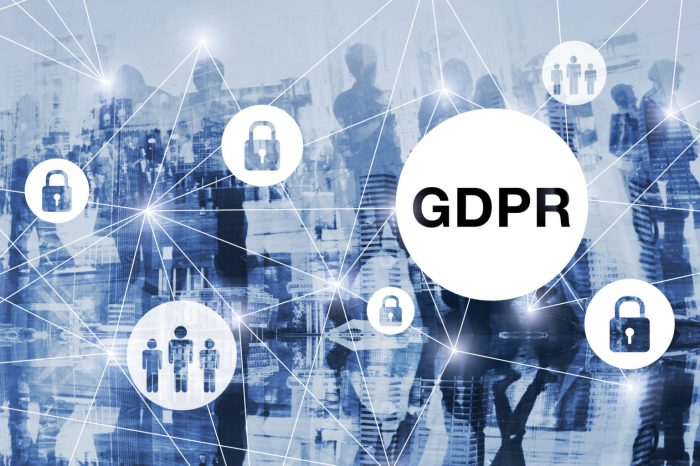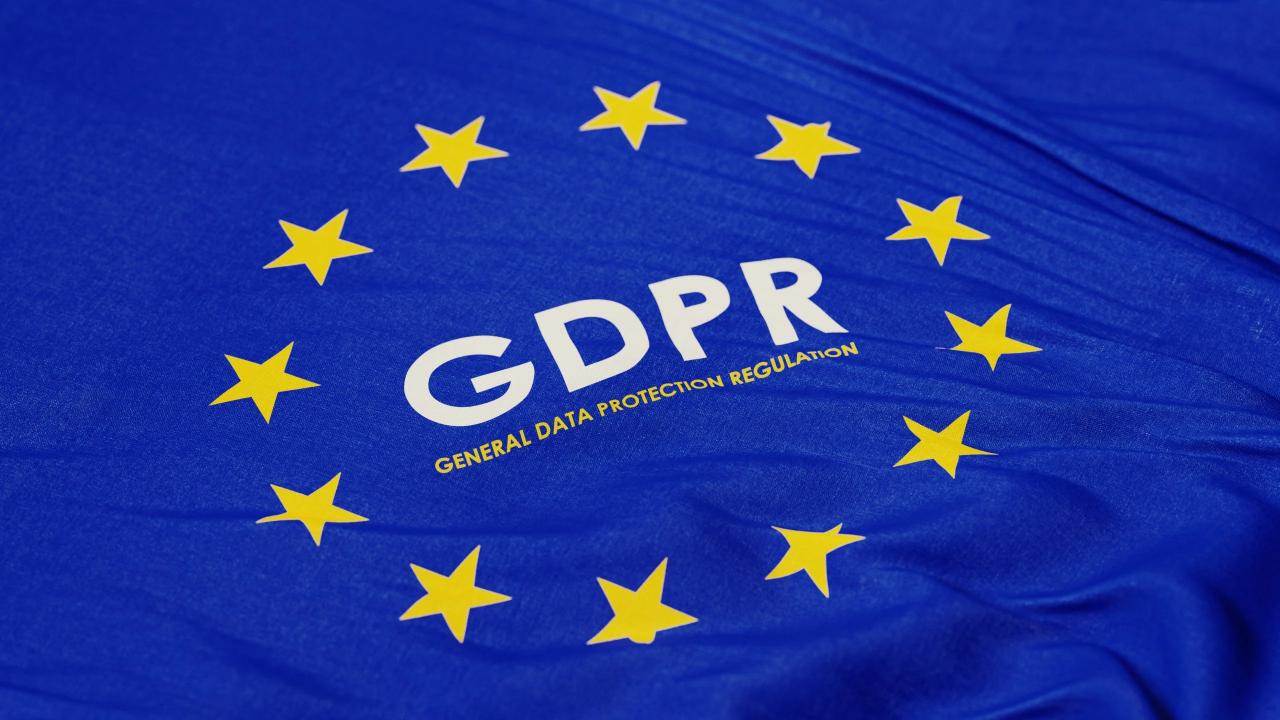Understanding GDPR Compliance sets the stage for this enthralling narrative, offering readers a glimpse into a story that is rich in detail with american high school hip style and brimming with originality from the outset.
Get ready to dive into the intricate world of data protection laws and regulations that impact businesses and individuals alike.
Overview of GDPR Compliance
The General Data Protection Regulation (GDPR) is a regulation in EU law on data protection and privacy for all individuals within the European Union (EU) and the European Economic Area (EEA). It aims to give control to individuals over their personal data and simplify the regulatory environment for international business.
Purpose and Scope of GDPR
The purpose of GDPR is to protect the personal data of individuals and ensure that companies handle this information responsibly. It applies to all organizations operating within the EU, as well as those outside the EU that offer goods or services to individuals in the EU.
Importance of GDPR Compliance for Businesses
Compliance with GDPR is crucial for businesses to avoid hefty fines and maintain trust with customers. It shows a commitment to data protection and can enhance the reputation of a company.
Key Principles of GDPR, Understanding GDPR Compliance
- Transparency: Individuals should be informed about how their data is being used.
- Lawfulness, Fairness, and Purpose Limitation: Data processing should be lawful, fair, and limited to the specified purpose.
- Data Minimization: Only necessary data should be collected and stored.
- Accuracy: Data should be accurate and kept up to date.
- Storage Limitation: Data should not be kept longer than necessary.
- Integrity and Confidentiality: Data should be kept secure and protected against unauthorized access or disclosure.
Rights of Individuals under GDPR
-
Right to Access: Individuals can request access to their personal data and information about how it is being processed.
-
Right to Rectification: Individuals can request that inaccurate or incomplete data be corrected.
-
Right to Erasure: Individuals have the right to have their personal data erased under certain conditions.
-
Right to Data Portability: Individuals can obtain and reuse their personal data for their purposes across different services.
-
Right to Object: Individuals can object to the processing of their personal data in certain circumstances.
Understanding Personal Data: Understanding GDPR Compliance

In the digital age, protecting personal data is crucial to safeguarding individuals’ privacy and preventing misuse of sensitive information.
Defining Personal Data
Personal data, according to GDPR, refers to any information that relates to an identified or identifiable individual. This includes but is not limited to names, addresses, email addresses, identification numbers, IP addresses, and biometric data.
Categories of Personal Data
- Basic Identity Information: Names, addresses, identification numbers
- Contact Information: Email addresses, phone numbers
- Personal Characteristics: Age, gender, race
- Biometric Data: Fingerprints, facial recognition
- Web Data: IP addresses, cookies, browsing history
Examples of Personal Data under GDPR
- An individual’s name and home address stored in a company’s database
- A customer’s email address used for marketing purposes
- A person’s social media account details collected for targeted advertising
Significance of Protecting Personal Data
Protecting personal data is essential as it helps maintain trust between individuals and organizations, ensures compliance with privacy regulations, and minimizes the risk of identity theft and fraud in the digital realm.
GDPR Compliance Requirements

To comply with GDPR regulations, data controllers and processors have specific obligations to ensure the protection of personal data. These requirements are crucial for businesses to follow in order to avoid hefty fines and maintain the trust of their customers.
Obligations for Data Controllers and Processors
- Data controllers must ensure that personal data is processed lawfully, transparently, and for specified purposes.
- Data processors must only act on the instructions of the data controller and implement appropriate security measures to protect personal data.
- Both controllers and processors must maintain records of processing activities and cooperate with supervisory authorities.
Steps for Ensuring GDPR Compliance
- Conduct a thorough audit of data processing activities to identify areas of non-compliance.
- Implement technical and organizational measures to secure personal data, such as encryption and access controls.
- Provide training to employees on data protection practices and GDPR requirements.
Data Protection by Design and Default
Data protection by design and default requires organizations to consider data protection measures at the initial stages of system design and ensure that privacy settings are set to high by default. This helps minimize the risk of data breaches and enhances data security.
Data Protection Impact Assessments (DPIAs)
- DPIAs are a tool used to identify and mitigate risks associated with data processing activities.
- They involve assessing the necessity and proportionality of data processing, as well as evaluating the impact on individuals’ rights and freedoms.
- Conducting DPIAs is essential for ensuring compliance with GDPR and demonstrating accountability in data processing practices.
Data Subject Rights
In the context of GDPR compliance, it is essential for businesses to understand the rights granted to individuals regarding their personal data. These rights empower individuals to have control over how their data is collected, processed, and stored by organizations.
Right to Access
- Individuals have the right to request access to their personal data held by a business.
- Businesses should provide a copy of the data free of charge and within one month of the request.
- It is crucial for businesses to verify the identity of the data subject before providing access to the data.
Right to Rectification
- Data subjects can request the correction of inaccurate or incomplete personal data.
- Businesses must respond to these requests in a timely manner and update the data accordingly.
- Keeping records of rectification requests and actions taken is essential for compliance.
Right to Erasure
- Also known as the “right to be forgotten,” individuals can request the deletion of their personal data.
- Businesses should assess each request carefully, considering legal obligations and exemptions.
- It is crucial to have procedures in place to securely erase data when requested by a data subject.
Obtaining Valid Consent
- Businesses must obtain explicit consent from individuals before processing their personal data.
- Consent should be freely given, specific, informed, and unambiguous.
- Keeping records of consent obtained and allowing individuals to withdraw consent easily are essential.
Handling Data Subject Requests
- Businesses should have clear procedures in place to handle data subject requests efficiently.
- Response times should be prompt, and requests should be handled securely and transparently.
- Training employees on how to recognize and respond to data subject requests is crucial for compliance.
GDPR Enforcement and Penalties
When it comes to enforcing GDPR compliance, supervisory authorities play a crucial role in ensuring that organizations adhere to the regulations set forth by the General Data Protection Regulation. These authorities are responsible for monitoring compliance, investigating potential violations, and imposing penalties on non-compliant organizations.
Role of Supervisory Authorities
Supervisory authorities are independent public bodies established by each EU member state to oversee the application of GDPR within their respective jurisdictions. They have the power to conduct audits, investigate complaints, and issue fines for non-compliance with the regulation.
Consequences of Non-Compliance
Failure to comply with GDPR can have serious consequences for organizations, including fines, reputational damage, and loss of customer trust. In severe cases, non-compliant organizations may face legal action, which can result in even more significant penalties.
Tiered Approach to GDPR Fines
GDPR fines are imposed on a tiered basis, with the severity of the violation determining the amount of the penalty. Minor infringements may result in lower fines, while more serious violations can lead to much higher penalties. The maximum fine for the most severe breaches can be up to €20 million or 4% of the company’s global annual turnover, whichever is higher.
Examples of Companies Facing Penalties
Several companies have faced penalties for GDPR violations since the regulation came into effect. For instance, Google was fined €50 million by the French data protection authority for lack of transparency and consent in its data processing activities. British Airways also received a fine of €22 million for a data breach that exposed the personal information of over 400,000 customers.
